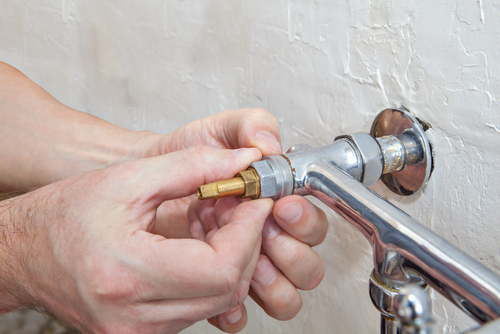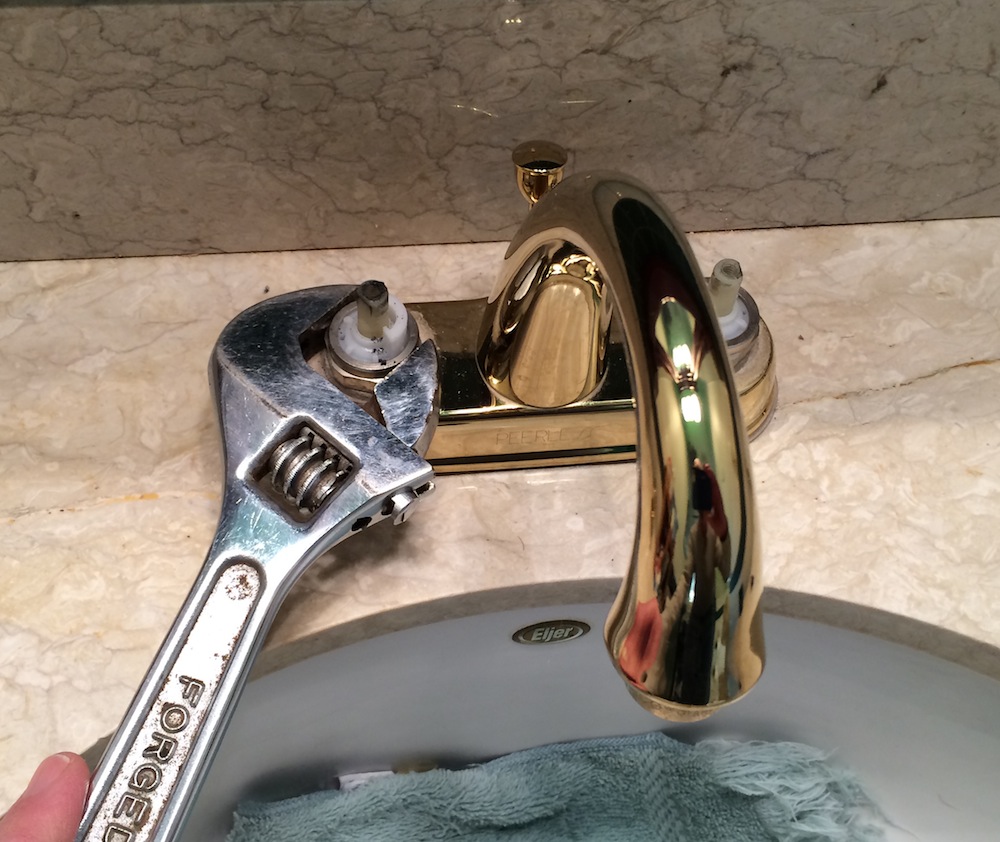Our Importance of Correcting a Broken Faucet
Our Importance of Correcting a Broken Faucet
Blog Article
Just how do you really feel when it comes to Why Is It Important To Fix Your Leaking Tap/Faucet??

Trickling taps may appear like a minor inconvenience, yet their influence exceeds just the inconvenience of the sound. From drainage to sustaining unneeded financial costs and wellness threats, neglecting a dripping tap can result in various effects. In this write-up, we'll explore why it's important to address this usual family issue promptly and properly.
Waste of Water
Environmental Effect
Trickling faucets contribute significantly to water waste. According to the Environmental Protection Agency (EPA), a solitary tap leaking at one drip per second can throw away greater than 3,000 gallons of water per year. This not just stress water resources yet also influences communities and wildlife based on them.
Step-by-Step Guide to Taking Care Of a Dripping Faucet
Devices Required
Prior to trying to take care of a dripping tap, collect the required devices, including a flexible wrench, screwdrivers, replacement components (such as washing machines or cartridges), and plumber's tape.
Typical Tap Issues and Their Solutions
Determine the sort of faucet and the details issue creating the drip. Usual problems include damaged washers, corroded shutoff seats, or faulty O-rings. Describe manufacturer directions or on-line tutorials for step-by-step support on repairs.
Financial Costs
Boosted Water Costs
Beyond the environmental influence, trickling faucets can pump up water expenses substantially. The built up waste with time translates into higher utility expenditures, which can have been avoided with timely repair services.
Possible Home Damages
In addition, prolonged leaking can cause harm to components and surface areas bordering the tap. Water buildup can create discoloration, deterioration, and also architectural issues if left unattended, leading to extra repair service costs.
Health and wellness Worries
Mold And Mildew and Mold Development
The consistent visibility of dampness from a trickling tap produces a suitable setting for mold and mildew and mold growth. These fungi not only compromise interior air top quality yet additionally present wellness threats, specifically for people with breathing conditions or allergies.
Waterborne Conditions
Stationary water in leaking faucets can become a breeding ground for microorganisms and various other microorganisms, boosting the danger of waterborne diseases. Contaminants such as Legionella bacteria grow in stagnant water, potentially bring about significant health problems when ingested or inhaled.
Do it yourself vs. Expert Repair work
Advantages and disadvantages of DIY Fixing
While some might attempt to deal with a dripping tap themselves, DIY repairs feature their own set of obstacles. Without appropriate knowledge and devices, DIY efforts can intensify the issue or bring about insufficient repair services, extending the trouble.
Benefits of Working With an Expert Plumber
Hiring an expert plumber ensures that the underlying source of the leaking tap is dealt with properly. Plumbings have the knowledge and tools to diagnose and fix tap problems successfully, saving time and decreasing the risk of additional damages.
Environmental Obligation
Specific Payment to Conservation
Taking duty for fixing leaking taps aligns with wider initiatives toward water conservation and ecological sustainability. Every person's actions collectively make a substantial effect on protecting priceless sources.
Sustainable Living Practices
By prioritizing prompt repair services and embracing water-saving behaviors, people add to lasting living practices that benefit both existing and future generations.
Safety nets
Normal Maintenance Tips
To prevent leaking faucets, do regular upkeep such as cleansing aerators, inspecting for leaks, and replacing worn-out parts immediately. In addition, take into consideration mounting water-saving tools or updating to a lot more reliable components.
Value of Prompt Services
Addressing dripping faucets as soon as they're noticed prevents further water wastage and potential damages, inevitably conserving both water and money over time.
Impact on Residential Property Worth
Understanding of Well-Maintained Home
Preserving a residential property in good condition, including dealing with maintenance concerns like trickling taps, improves its regarded worth and value among potential customers or tenants.
Impact on Resale Value
Characteristics with well-maintained plumbing components, consisting of faucets, command greater resale values in the real estate market. Resolving trickling faucets can add to a favorable impression during building examinations and settlements.
Conclusion
Resolving a leaking faucet surpasses mere comfort; it's an important action toward preserving water, decreasing financial expenses, and safeguarding wellness and home. Whether through do it yourself repair work or specialist support, doing something about it to deal with leaking taps is a small yet impactful means to promote accountable stewardship of sources and contribute to a much healthier, more lasting future.
How to Fix a Leaky Faucet: Step-by-Step Repair Guide
A leaky faucet may seem like a simple annoyance, but if it's not fixed promptly, that leak could cost hundreds to potentially thousands. From water damage to mold, mildew, and high water bills, even a tiny leak can be catastrophic if left unattended. Damage like this can even affect the overall value of your home, so it's important to take the right approach for leaky faucet repair. You may need the help of a plumber in some cases, but we've got a few tips you can try on how to fix a leaky faucet before calling the pros.
Four Faucet Types
When you're learning how to fix a leaky faucet, the first step is knowing what kind of faucet you're working with! There are four common types.
Cartridge Faucets
Cartridge faucets come in one- or two-handled varieties. In one-handled cartridge faucets, hot and cold water combines in a single cartridge. In the two-handled versions, hot and cold water are controlled separately and mixed in the faucet.
Ball Faucets
Ball faucets have a single lever you push up and down to adjust the pressure and rotate to change the temperature. A slotted metal ball controls the amount of water allowed into the spout.
Compression Washer Faucets
They're the oldest type of faucet, but they're still used in many homes — especially older ones. Compression faucets have two separate handles that, when turned, raise or lower the washer that seals a water valve. This valve stops water from flowing through the faucet when it is turned off.
Disc Faucets
Disc faucets rarely need to be repaired due to their maintenance-free design. The water flow is controlled by two discs — the upper one raises and lowers against a fixed lower disc, creating a watertight seal. If your disc faucet starts leaking, you may need to replace the seals or clean residue buildup from the inlets.
Fixing a Leaky Faucet
Step 1: Turn Off the Water
Whether you're learning how to fix a leaky bathtub faucet or how to fix a leaky kitchen faucet, always turn off the water supply to your working area when you're fixing a leak. The last thing you want is a flood added to your list of things to fix.
Look for the shutoff valves below your sink or around the tub and turn them clockwise to stop the water flow. If your faucet doesn't have shutoff valves, you may need to turn off the water for the whole house. Check to make sure it's off by turning the faucet on. If nothing comes out, you're ready to start the repair.
Step 2: Take Apart the Faucet
How you disassemble your faucet depends on the type of fixture you have. You can use a flathead screwdriver to remove the caps on top of the handle or handles for cartridge and compression faucets. Inside, you should see handle screws. Unscrew these with a screwdriver to remove the handle.
Disc- and ball-style faucets will typically have an inlet screw near the handle, and removing that will reveal the interior of the faucet.
Detach the Valve Stem
For cartridge- and compression-style faucets, you'll see the inner valve stem or cartridge once you remove the faucet handles. If you have a compression faucet, unscrew the brass valve stem. If you have a cartridge faucet, pull out the cartridge. If your cartridge has been in place for a while, it may require some tools or extra force to remove it due to mineral deposits.
Examine and Replace Parts
Once you've removed the parts, check them out to confirm what needs to be replaced. You may see corroded rubber washers, O-rings, stems, or cartridges. On a ball-style faucet, check the seats and springs for damage.
If you need to repair a leaky disc faucet, check the inlet and seals on the lower disc.
Once you determine what parts must be replaced, visit your local hardware store. Bring the damaged parts with you to ensure you can purchase the correct components to replace them.
Clean Valves and Faucet Cavity
If you've removed a stem or cartridge, you may notice mineral buildup in the faucet's threads. Use white vinegar to clean the valve seat by soaking it for a few minutes, then scrub it away with a soft toothbrush and rinse with warm water. You can also clean the interior of the faucet in the same way.
Reassemble the Faucet
Once your faucet is cleaned and the required parts have been replaced, it's time to reassemble it. Put the pieces back together and slowly turn the water supply back on. Doing this slowly is crucial because too much initial water pressure can damage the new hardware you've just installed.
https://homewarranty.firstam.com/blog/how-to-fix-leaky-faucet

Do you like reading up on What Causes Leaky Faucets & How To Fix Them? Put a short review below. We would be happy to listen to your opinion about this piece. In hopes that you visit us again soon. I beg you take the time to distribute this entry if you enjoyed it. Thank-you for your time spent reading it.
Report this page